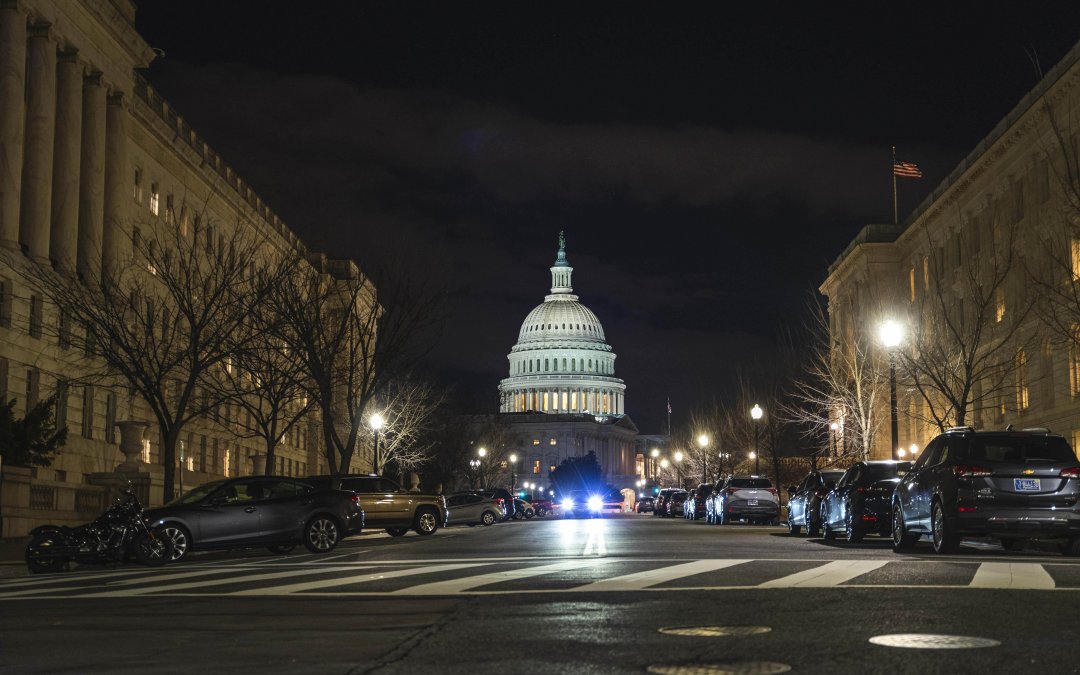WASHINGTON — As President Donald Trump’s cabinet hearings continue to crawl ahead, many of his nominees have noticeably aired their support for Section 702, a surveillance law allowing the government to monitor non-Americans outside the country without a warrant.
At last week’s Senate Intelligence Committee hearing, Trump’s pick for CIA Director John Ratcliffe cited renewing Section 702 as one of his top priorities. Pam Bondi, the president’s nominee for Attorney General, called the law a “very important tool.”
The provision has also emerged as a lightning rod in Tulsi Gabbard’s bid for Director of National Intelligence after she reversed her hardline stance in support of the surveillance tool.
For close to two decades, Section 702 has played a consistent role in America’s playbook in collecting foreign intelligence and countering terrorist movements. As it comes up for reauthorization next year, the law’s overwhelming support seen in Trump’s impending cabinet, however, renews concerns over the provision’s penchant for surveilling Americans too, experts say.
The communications database of Section 702 is vast and ever-growing, amassing hundreds and thousands of emails, texts and phone calls from foreign nationals. In the process of its information collection, the system also gathers communication exchanges between U.S. residents and business entities with foreigners.
That has often raised questions for many Americans over how much of their digital privacy is fully under the government’s nose.
“You have a law that is not supposed to apply to Americans that is collecting information from Americans that otherwise you need a warrant to get, because it was collected incidentally through this program,” said Chip Gibbons, the policy director of Defending Rights & Dissent, a national civil liberties organization.
Only in rare cases can the FBI use the database to initiate investigations into U.S. residents and companies without first acquiring a warrant — including in cases when there are probable causes for evidence of a crime or untapped foreign intel.
Even so, FBI officials have been previously caught misusing the law, conducting warrantless backdoor searches on Americans.
In 2020 and 2021, the FBI enlisted the database in thousands of investigations into crime victims, Jan. 6 riot suspects and people arrested at the 2020 Black Lives Matter protests, according to the Washington Post.
More recently, U.S. lawmakers have appeared to float the idea of spying on Pro-Palestinian protesters across college campuses for having potential ties with Hamas, which the U.S. government classifies as a terrorist organization, the Wired first reported.
“Its renewal was sold in part behind closed doors as being needed to spy on pro-ceasefire protesters,” Gibbons said, referring to when Section 702 was authorized for a renewal in 2024.
The U.S. District Court East District of New York ruled on Tuesday that backdoor searches under Section 702 ordinarily require a warrant, notching a major win for civil liberty advocates.
“I hope it will push the Foreign Intelligence Surveillance Court to understand that the data that they are helping to accumulate can’t be used for domestic law enforcement purposes without a warrant,” said Matthew Guariglia, a senior policy analyst at the digital rights group Electronic Frontier Foundation. “I also hope that it will change the minds of a lot of people in Congress.”
Some lawmakers have familiarly advocated for additional security measures, ahead of their decision next year on whether to reauthorize the law.
“It’s an important capability that requires rigorous oversight,” Sen. Jon Ossof (D-Ga.), a member of the Senate Intelligence Committee, told Medill News Service.
Ossoff has previously suggested the need for a warrant requirement to Section 702. His Republican colleagues on the committee have frequently brushed aside those discussions during the latest round of Senate confirmation hearings.
“It’s basically looking at things overseas, not in the United States,” Sen. Mike Rounds (R-S.D.) said at Ratcliffe’s committee confirmation hearing.
While all of that has transpired, Trump — who first stoked debates over Section 702 when he claimed the tool was used to spy on his campaign during his first administration — has not commented recently on its reauthorization.
“KILL FISA, IT WAS ILLEGALLY USED AGAINST ME, AND MANY OTHERS. THEY SPIED ON MY CAMPAIGN!!!” Trump wrote about a year ago on X, urging House Republicans to spike a bill for the law’s reauthorization.
Trump’s return to office only spells more uncertainty at what his administration might bode for Section 702, experts predict.
“In an administration that is potentially hell-bent on punishing political opponents, that is an incredibly scary prospect,” Guariglia said. “But that’s also the fear, regardless of the administration, is that we know when given the reins to a tool of mass surveillance, you can use it any way you want.”
Guariglia also warned that some Democrats who helped reauthorize Section 702 can find the decision backfiring on them. As part of Trump’s crackdown on immigration, he noted that intelligence agencies can even harness information from the database to vet asylum seekers — a ploy to deny legal entries into the country.
“Democrats gave access to private communications of potential immigrants to the federal government, which we could easily see being misused to vet, you know, a person’s personal politics or their sexuality or their gender identity,” he said.


